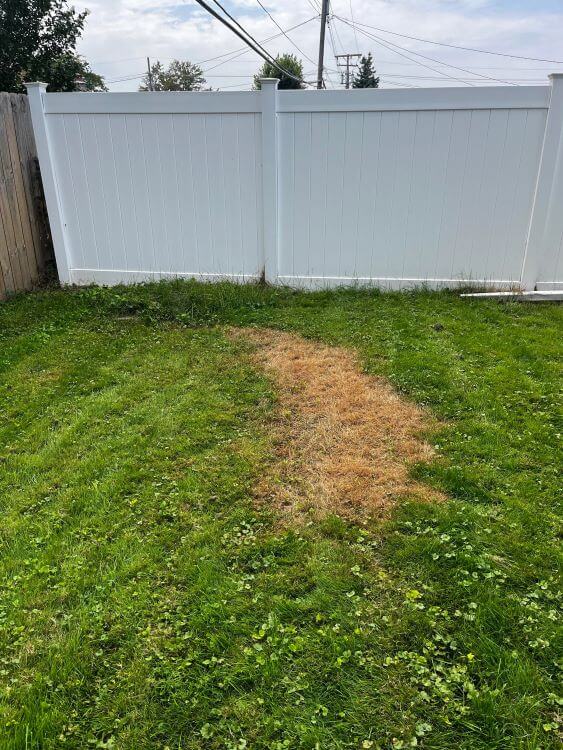Most homeowners value their yards, and they are often an extension of tastes and efforts.
Therefore, it can be frustrating when obstacles prevent them from enjoying this value.
One Redditor shared photos of their damaged lawn, requesting solutions amid safety concerns from users.


The post in r/lawncare highlights the actions of a neighbor not acting neighborly as they deliberately damaged the original poster's front and back lawns by pouring some type of grass killer on them.
The use of random, toxic products on your lawn affects local ecosystems and wildlife. According to the National Wildlife Federation, lawn chemicals impact pollinators such as bees, which are critical in helping to increase crop yields for our food system.
Unfortunately, vandalism is not a new phenomenon. When it comes to lawn destruction, not only does it disrupt enjoyment for homeowners, but it also impacts biodiversity and local wildlife. In addition, homeowners must pick up the pieces to restore their lawns.
"I know my lawn is already ugly, but these dead patches make it look way worse. I'm a lawn amateur. What's the easiest, least expensive way to fix this? I'm in Michigan, it'll be in the 90s all week," wrote the OP in the caption of their post.
Many homeowners have seen the benefits of replacing traditional grass lawns with more efficient and low-maintenance options. This includes the tapestry lawn, which is a vibrant mix of low-growing, native flowers, as well as the moss lawn, which thrives in shaded areas and reduces the need for maintenance or water usage.
These types of lawns are critical in that they support biodiversity and significantly decrease the need for chemical treatments. Legislation is even encouraging homeowners to take advantage of the value lawn alternatives can bring.
🗣️ If you were to switch from a grass lawn to a more natural option, which of these factors would be your primary motivation?
🔘 Making it look better 🌱
🔘 Saving money on water and maintenance 💰
🔘 Helping pollinators 🐝
🔘 No way I ever get rid of my lawn 🚫
🗳️ Click your choice to see results and speak your mind
In the OP's case and others like it, difficult neighbors can act as a barrier to making environmentally friendly choices. When it comes to resolutions with troublesome neighbors, it's recommended to stay calm, communicate openly, and document incidents if they occur. If things escalate, best practices suggest seeking mediators or speaking to local authorities.
Switching to a non-grass lawn can provide resilience in the event dangerous chemicals are used. Natural pest control solutions can also be an effective approach.
"I'm usually the type to brush things off but I'd report it to EPA," wrote one Redditor.
"Water like normal and wait," commented another.
Join our free newsletter for easy tips to save more and waste less, and don't miss this cool list of easy ways to help yourself while helping the planet.









